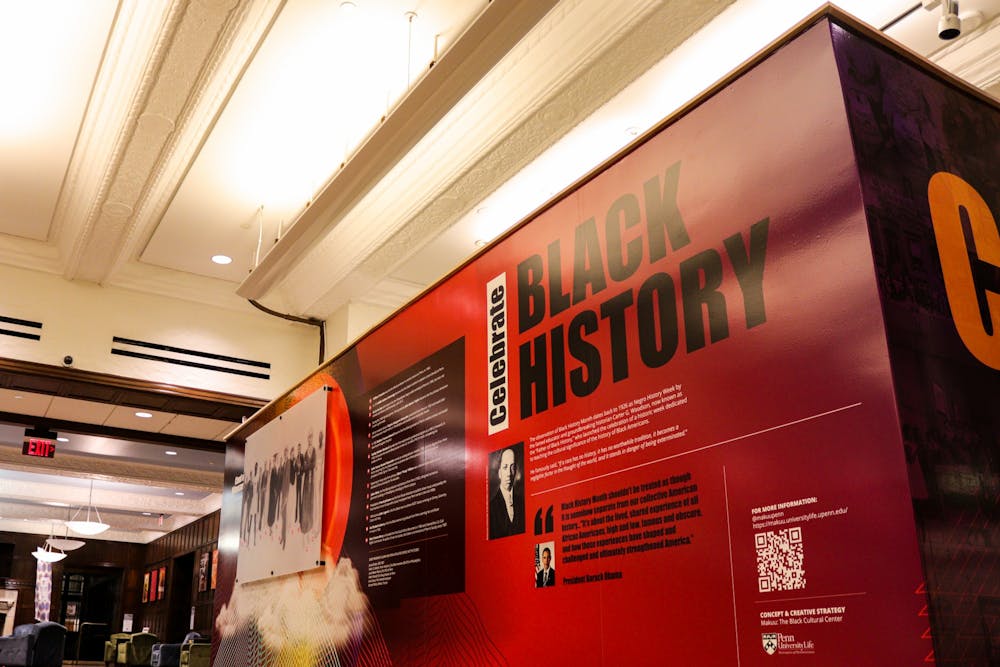In elementary school, February was the only time I learned about Black historical figures. I recall cutting out paper dolls of Harriet Tubman, Martin Luther King Jr., and Rosa Parks — all the same shade of brown due to the singular brown crayon. While the lack of diverse skin color crayons posed an inconvenience that has since been rectified, the real issue of approaching and teaching the entirety of Black history as a 28 day event has not.
You may leave this very narrow curriculum knowing what year the Emancipation Proclamation was signed, and what the Montgomery Bus Boycott was, but beyond that, nothing more.
Unfortunately, many people don’t seek out information about Black history because they haven’t been taught that it is important for them to know. This very narrow view of Black people's history in America — one that often focuses on slavery and civil rights but leaves out everything in between — is the extent to which most young people (particularly those who are not Black themselves) interact with Black history. Rather than focus on Black people's ongoing contributions, lots of time is spent on reliving past trauma.
When Black history is treated as a subgenre of history that is never fully explored, teachers neglect the history and accomplishments of Black people. Black History Months’ origins lie in what was once a week-long celebration known as Negro History Week. This week was established by Carter G. Woodson with the purpose of encouraging Black History education all year long. Woodson intended for that week to spur the teaching of Black history, not confine it.
Leading up to entering the workforce or attending college, many people are ingrained with the belief that Black history knowledge is not crucial. This lack of proactive learning by non-Black people about Black history does a disservice to not just the person, but to the greater community.
In light of Florida outlawing the teaching of AP African American Studies, and several states banning the teaching of critical race theory, the importance of understanding Black history cannot be understated. Direct attacks on the Black history curriculum means that seeking out this understanding on one's own is all the more important.
When asked about his view of Black history, English and Africana Studies professor Herman Beavers expressed the importance of viewing Black history as an evolving process: “We tend to think of it as quantitative … but if you think of Black history as a verb — as this thing that people do, that people make, something else happens.” Rather than unchanging, Black history is ongoing and multifaceted.
Professor Beavers went on to state that “Non-Black people have got to stop looking at Black history as not having anything to do with them — it has everything to do with them.”
SEE MORE FROM MIA VESELY:
How diversity is valued (or not) in Class of 2026 admissions
Regardless of your race, Black history is your history. Whether you identify as “American” or an ethnic group not of the Black diaspora, American history is Black history and vice versa. As Penn students, the importance of Black history is especially prevalent, as Penn is located in West Philadelphia, an area that was once known as the “Black Bottom.” The very area we occupy is a Black community that is being gentrified by institutions such as Penn.
Learning Black history is not as simple as opening up a history book and reading about notable historical figures. It also means learning about the city or state you live in, or the Black people who may have founded the community. It means that when listening to genres of music such as Rock 'n Roll, you recognize its origins in Jazz and Blues genres. It means learning about historical topics that they don’t usually highlight in school such as Black Wall Street or the murder of Emmett Till.
Above all else, it means seeing yourself in Black history. There is a looming sense of apprehension I find myself feeling when I talk about Black history with non-Black people, as though they shouldn’t be expected to know about it or are ashamed that they don’t. I’m here to tell you that it’s never too late to start learning, appreciating, and valuing Black history.
There are many ways to do this. This month alone ARCH has had many events centered around Black history. And recently, due to Black History Month, there have been several events on the greater campus that I encourage students of all backgrounds to check out and participate in.
There is no expectation to focus on Black history as an adult; it’s something you must seek out yourself, whether that is in the form of taking a class through Penn’s Africana Studies program, attending a collaborative cultural event in ARCH, or simply learning more online, it can only add to and help you understand your own history.
Even without attending events or taking these steps, Black history is something inherent and inescapable in everyone's life. We are all a part of Black history every day and interact with it simply by living.

MIA VESELY is a College first year studying philosophy, politics, and economics from Phoenix. Her email is mvesely@sas.upenn.edu.









